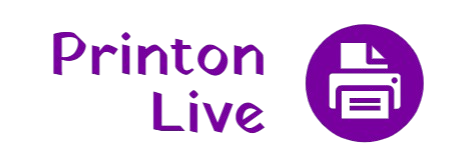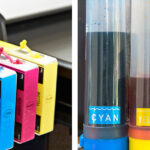Business cards, despite the digital age, continue to be a powerful and indispensable networking tool. Here’s a look at why they’re so impactful and how to leverage them effectively:
1. First Impressions Last
- Business cards are often the first tangible representation of you and your brand. A well-designed card can make a memorable impact and convey professionalism, creativity, and attention to detail.
- They give people a sense of your business style and personality. High-quality paper, a thoughtful layout, and a clean design show you care about quality.
2. Convenience and Accessibility
- Unlike digital contact info, which can get buried in email threads or contacts, a physical business card is easy to access and store. People often keep cards in a dedicated space or binder, which makes it easier to recall and follow up.
- They’re particularly useful at events, conferences, or trade shows where Wi-Fi might be unreliable, making it easier to exchange details in person.
3. Supports In-Person Networking
- Exchanging business cards creates a personal, immediate connection. It’s a more meaningful interaction than simply sending someone an email or LinkedIn request. The physical act of exchanging cards can open up the conversation and lead to stronger connections.
4. Tangible Reminder of Your Interaction
- After meeting numerous people, a business card serves as a reminder of who you are, especially if it’s distinctive or includes a personal note.
- A creative, visually appealing card can be a talking point and reinforce your brand long after the initial meeting.
5. Branding Opportunity
- Your business card is a mini marketing tool. Including a logo, brand colors, and fonts helps reinforce your brand identity and makes you more memorable.
- Consider adding a tagline or unique visual elements that emphasize what makes your brand special.
6. Versatility in Design and Function
- Beyond contact information, business cards can include a QR code that links to your website, portfolio, or social media, creating a bridge between physical and digital networking.
- Some professionals include loyalty incentives, product discounts, or event invitations on the back, adding functionality and increasing the chances of follow-up.
7. Increases Credibility and Legitimacy
- A business card instantly establishes that you’re serious about your work. It’s a universal signal of credibility, especially for startups, freelancers, and small businesses.
- A well-presented card can help convey legitimacy and expertise in your field, and gives potential clients or partners confidence in your professionalism.
8. Cost-Effective Marketing Tool
- Business cards are relatively inexpensive, especially when ordered in bulk, and offer an impressive return on investment by potentially generating leads and business.
- Many online and local printers offer customization options, enabling you to make an impactful design without breaking the bank.
9. Can Be Creative and Memorable
- Business cards allow for creative freedom—think about interesting shapes, textures, or even materials. People are more likely to remember an unusual or eye-catching card.
- A creative approach to business cards can help make a lasting impression and differentiate you from competitors.
10. Allows for Personalization
- Adding a personal note or handwriting a quick message on your card can enhance your interaction, showing genuine interest and care.
- For repeat meetings or follow-ups, you can even keep a stack of slightly different cards tailored to the specific services or products that will resonate with your target audience.
In a world where everything is going digital, business cards maintain their relevance by offering a personal, effective, and memorable way to network. Their tactile nature, coupled with strategic design, allows them to make a lasting impact and foster real, meaningful connections.






